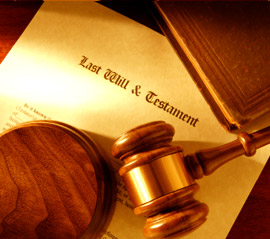Probate Vs. Non-Probate Assets (Wills, Inheritance and Estate Taxation and the Whole Process)

I used to work as a tax auditor for a mid-Atlantic state and I would get calls all the time from confused people about what they need to claim and where they file it. Now, estate procedures vary from state to state, however to clear up a very easy question many people seem to have.
Probate
Probate assets are assets that will pass through an estate either through written instruction (a will) or pursuant to the intestate rules or laws (without a will), that the municipality where the decedent passes away as a legal resident.
Non-probate
Non-probate assets are assets that can not pass through a will because they either have shared or joint ownership or they have a named beneficiary. Assets in a Living Trust (inter-vivos) would be a non-probate asset. Examples are : POD (payable on death) accounts, ITF (in trust for) accounts, an asset such as a life insurance policy where a living beneficiary is named. Also real property that is titled with a joint owner, that is not "tenants in common", such as tenants by entirety.
Why would I want anything to pass through my Will? Doesn't the state or Federal government tax everything away then?
Assets that pass through the probate process are awarded certain privileges, such as review by the state that they are being distributed pursuant to the decedent's wishes (via the will or intestate if no will). Assets that pass outside of probate, are reviewed for taxable transfers, after that their is no independent verification that they actually made it to the person named.
The state and federal government does not assess "death taxes", rather they are transfer taxes to cover the requirements for vetting or auditing the estate. Most states allow unlimited exemptions to spouses and direct lineal heirs (children, grandchildren, etc). Transfer to acquaintances, casual family members (cousins, nieces, etc) are normally subject to inheritance tax, which is not to be mistaken for estate taxes. Remember, there is no written right to control assets from beyond the grave. The state and federal government assures this privilege is done in an orderly and fair way. Imagine if you died and you left wishes to be followed, but no one was there to enforce them, someone would be sure to abscond with the assets!
Hope that helps and clears up some confusion.
Disclaimer: I am not an attorney, nor will this article act as sufficient advice. Research your local laws and contact your local Register of Wills, Probate Court, or estate attorney before makes any estate plans.
Also, should you have additional questions, provide the specifics in the comments section and I can give them a shot on how we might view them. :)






